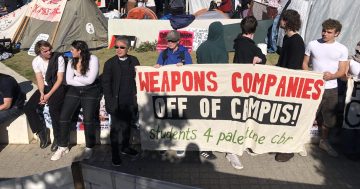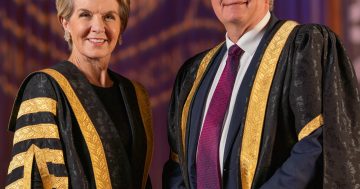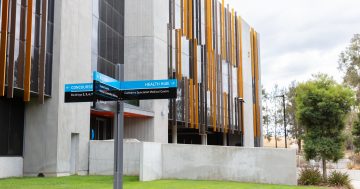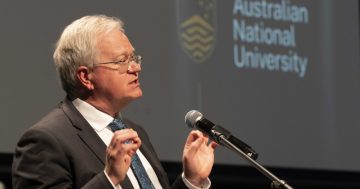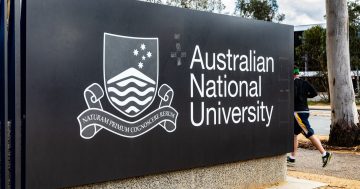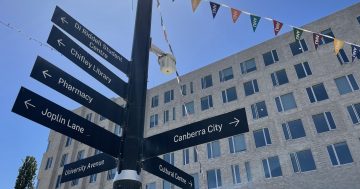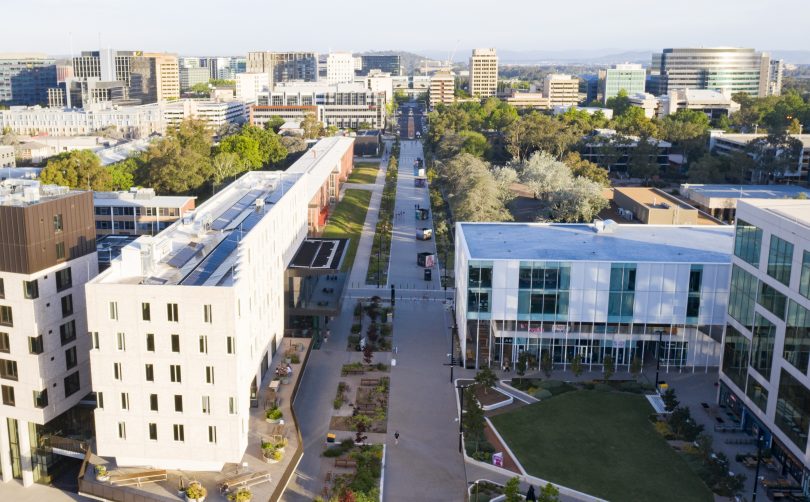
A group of academics has penned an open letter to the ANU to criticise the university’s decision to suspend ties with Russia. Photo: Martin Ollman.
A number of academics have criticised the Australian National University’s (ANU) decision to suspend ties with Russian institutions, claiming it could speed up the ‘country’s descent into the dark ages’.
The university last week strongly condemned the Russian invasion of Ukraine, saying it “threatens the peace, freedom, and democracy on which freedom of inquiry and academic collaboration is based”.
In a statement, signed by chancellor Julie Bishop, vice-chancellor Brian Schmidt and academic board chair Joan Leach, the ANU said the suspension would be immediate and indefinite.
But a group of academics – many of whom are of Russian descent – has now penned an open letter to the university’s board, calling on it to reconsider the decision.
“This policy primarily affects the research and educational institutions in Russia, and ultimately Russian scholars who may be the last remaining voice of reason in the country,” it read.
Instead, they’ve asked for a “better-targeted response” that would not punish Russian research institutions and scholars.
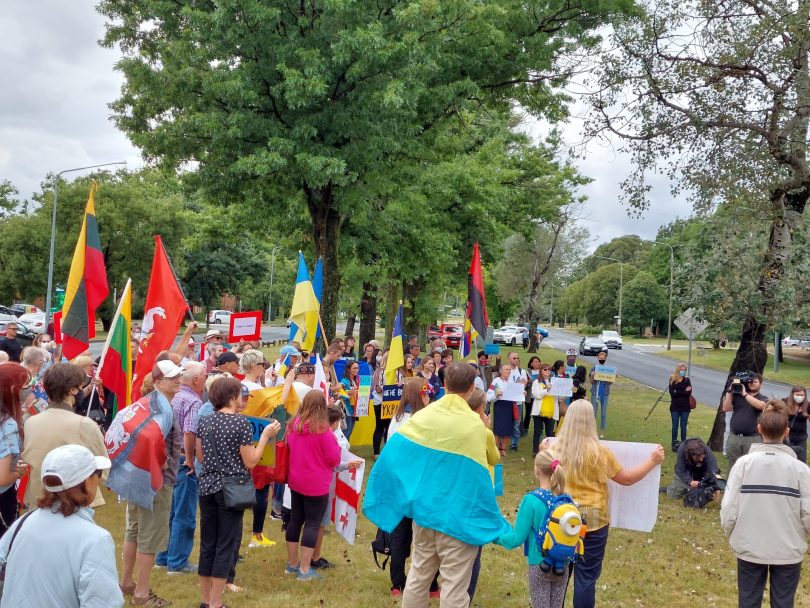
Protesters have been seen outside the Russian Embassy in recent weeks to protest the invasion of Ukraine (pictured: Saturday, 26 February). Photo: Region Media.
The academics claim in their letter that suspending ongoing activities with Russian research institutions will have “a devastating effect” on academics in Russia – many of whom “strive for international collaboration”.
According to it, many Russian students and academics themselves oppose President Putin’s unprovoked aggression.
“The policy of alienating Russian researchers at large will only help the Russian state’s propaganda of aggression and isolation. This policy will likely be interpreted as yet another case of western russophobia,” it read.
Furthermore, they allege suspending activities with Russian institutions will adversely affect ANU academics and students who are currently involved in Russian studies and collaborations.
The ANU’s Deputy Vice-Chancellor Professor Sally Wheeler said in a statement the boycott of Russian institutions only applies at the institutional level, which “includes all formal activities, exchanges, and research programs that involve the university as an institution”.
Professor Wheeler said university staff are free to interact with their Russian colleagues as the “university has not mandated any restrictions on an individual’s interactions with colleagues in Russia, except those that would come under the remit of foreign interference or which would contravene existing economic sanctions”.
“In line with our policies of academic freedom and free speech, all members of the ANU community are free to hold and legally express their own views and positions on any issue,” she said.
The university’s advice states that academics will still be permitted to co-publish with their Russian colleagues but they should avoid publishing in Russian-owned and operated journals.
Furthermore, staff members are advised to not use any of the university’s funding or any funds from external grant bodies to support Russian colleagues’ travel, publication costs or other costs that could be borne by Russian institutions.
University staff are also advised not to undertake any Russian-funded visits.
The ANU has formal agreements with the Moscow State Institute of International Relations and the National Research University of Higher School Economics.
The Department of Foreign Affairs and Trade (DFAT) is aware of these ties.
There are about 80 current students, staff and visiting and honorary fellows from either Russia or Ukraine at the university.
The university said it contacted these students from the region when tensions began to escalate. It will look to provide financial support for any students who are in need.













